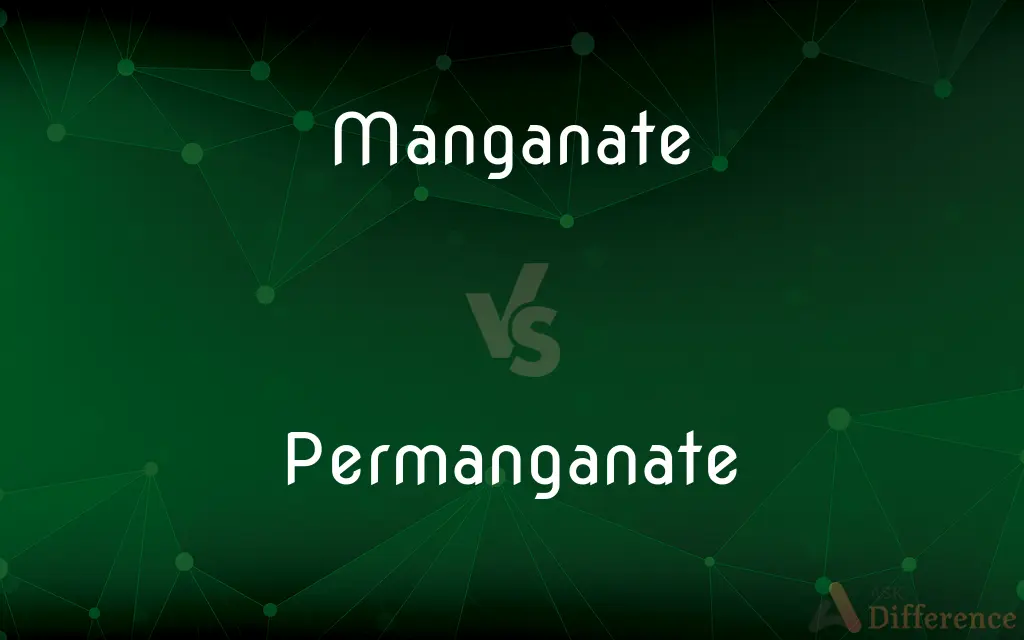Manganate vs. Permanganate — What's the Difference?

Difference Between Manganate and Permanganate
ADVERTISEMENT
Compare with Definitions
Manganate
In inorganic nomenclature, a manganate is any negatively charged molecular entity with manganese as the central atom. However, the name is usually used to refer to the tetraoxidomanganate(2−) anion, MnO2−4, also known as manganate(VI) because it contains manganese in the +6 oxidation state.
Permanganate
A permanganate is the general name for a chemical compound containing the manganate(VII) ion, MnO−4, the conjugate base of permanganic acid. Because the manganese atom is in the +7 oxidation state, the permanganate(VII) ion is a strong oxidizing agent.
Manganate
The anionic divalent group MnO4 or a salt containing it.
Permanganate
The anionic univalent group MnO4 derived from permanganic acid or a compound containing this group, all of which are strong oxidizing agents.
Manganate
(chemistry) Any compound containing the ion MnO42-.
ADVERTISEMENT
Permanganate
(inorganic chemistry) any salt of permanganic acid: they are purple crystalline solids, mostly soluble in water, and are strong oxidizing agents
Manganate
A salt of manganic acid.
Permanganate
(inorganic chemistry) potassium permanganate
Manganate
A salt of manganic acid containing manganese as its anion
Permanganate
A salt of permanganic acid.
Permanganate
A dark purple salt of permanganic acid; in water solution it is used as a disinfectant and antiseptic
Share Your Discovery

Previous Comparison
Exigency vs. Urgent
Next Comparison
Bowl vs. Basin














































